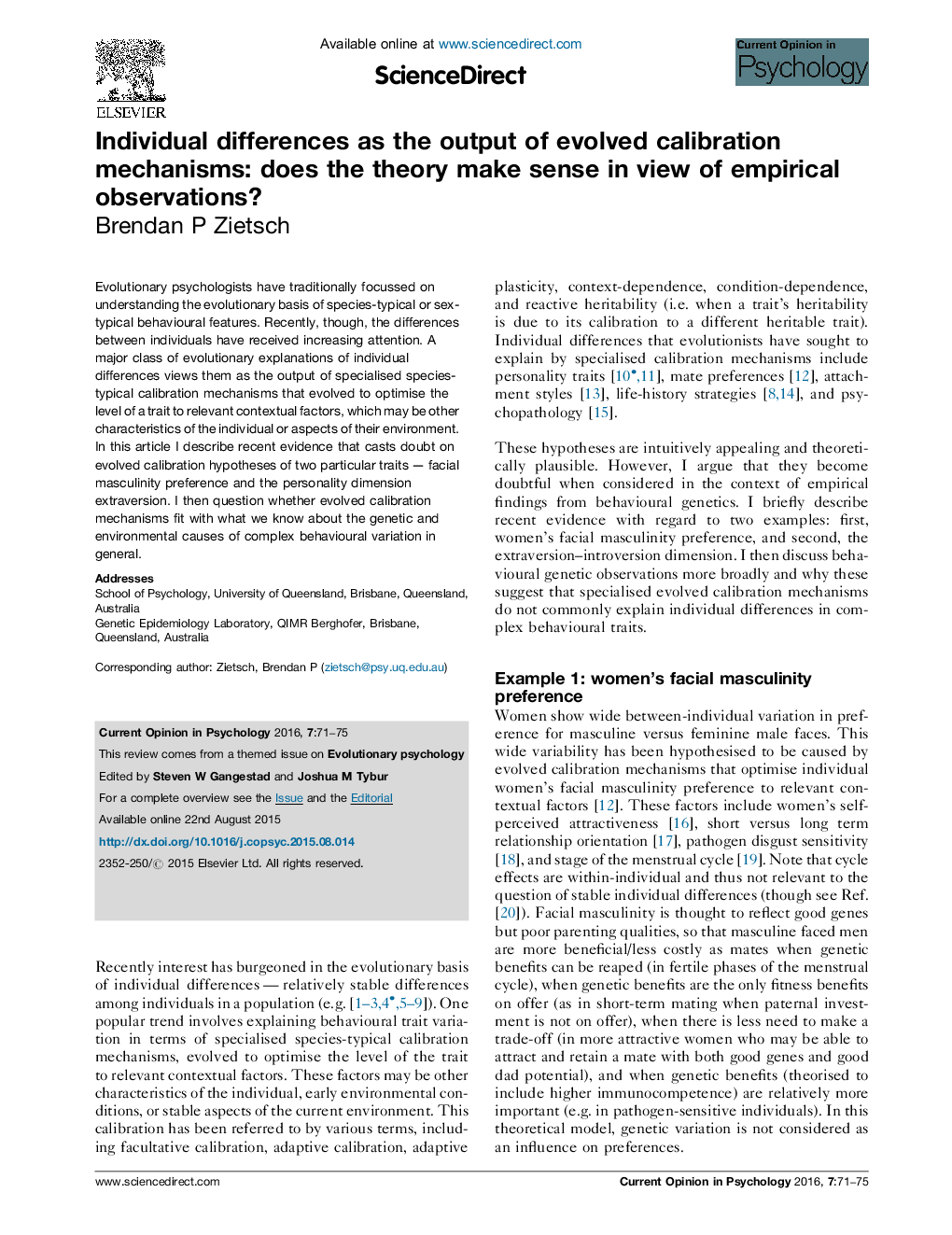| Article ID | Journal | Published Year | Pages | File Type |
|---|---|---|---|---|
| 879358 | Current Opinion in Psychology | 2016 | 5 Pages |
•Understanding individual differences is a major challenge for evolutionary psychologists.•Many argue that individual differences result from calibration of traits to contexts.•Unequivocal evidence for such calibration mechanisms is lacking.•There is evidence inconsistent with proposed calibration mechanisms.•Evolved calibration mechanisms do not explain large portions of trait variation.
Evolutionary psychologists have traditionally focussed on understanding the evolutionary basis of species-typical or sex-typical behavioural features. Recently, though, the differences between individuals have received increasing attention. A major class of evolutionary explanations of individual differences views them as the output of specialised species-typical calibration mechanisms that evolved to optimise the level of a trait to relevant contextual factors, which may be other characteristics of the individual or aspects of their environment. In this article I describe recent evidence that casts doubt on evolved calibration hypotheses of two particular traits — facial masculinity preference and the personality dimension extraversion. I then question whether evolved calibration mechanisms fit with what we know about the genetic and environmental causes of complex behavioural variation in general.
